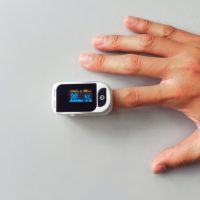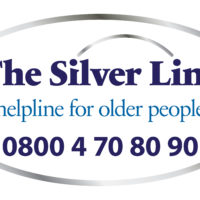As a domiciliary care provider, lone working in care and the safety of our staff is paramount. At Gardiner’s Homecare, our staff travel to clients’ homes to offer help and support. Whilst our staff have round-the-clock support from the off team via our on-call service, they are nevertheless lone working in care and therefore potentially […]
Read MoreThe COVID-19 crisis has affected everybody, including Care Staff Wellbeing. Many of us have faced significant challenges, or are feeling anxious. At Gardiner’s we are always looking at ways we can support our workforce and will ensure a member of the office team is available for you to talk to, should you need it. This […]
Read MoreOften, a person with dementia may go walking about, this is frequently referred to as wandering. The term wander means to walk or move in a leisurely or aimless way and therefore it is perhaps a little unhelpful since people with dementia who go wandering will likely have a reason for it. Many of us […]
Read MoreWith temperatures dropping it is important to take heed of cold weather advice for caring. We need to think about how to look after ourselves and others. For those of us who venture out, staying safe in cold weather means allowing extra time for any journeys, driving safely and slowly, wearing appropriate warm clothing including […]
Read MoreThe first Flood Safety step we should all take is to find out if in an area at risk from flooding. For those who are, it is sensible to sign up for flood warnings – you will be phone, email or text when flooding is expected. There are 3 levels of flood warning: Flood alert […]
Read MoreIf you or a loved one currently has coronavirus (COVID-19) symptoms, you should consider using a pulse oximeter. An oximeter is a small device which clips onto your finger and measures oxygen saturation in your blood. Normal oxygen level in the blood is between 95% and 100%. Using this device 3 times a day and […]
Read MoreIt is important to think about caring for people with seasonal affective disorder. The winter blues are common and affects people of all ages. The symptoms of seasonal affective disorder include: persistent low mood loss of pleasure or interest in normal everyday activities irritability feelings of despair, guilt and worthlessness feeling lethargic (lacking in energy) […]
Read MoreIf you are a carer you may well need to help the person that you care for to move around. Helping people to move safely is really important so that you don’t hurt yourself or your loved one. Consider if you get injured what would happen to the person that you provide care for? Carers often suffer from […]
Read MoreWith darker evenings upon us, stay safe at home. Thames Valley Police are reminding us all to take basic home security measures to help ensure that we stay safe at home. Tips to help you stay safe at home. Reduce the chance of your house being targeted: Invest in a timer light switch. Vary the […]
Read MoreSepsis or blood poisoning can happen as a result of an infection or injury. Our immune systems normally fight infection however sometimes it can attack our body’s own organs and tissues. Sepsis is a potentially life-threatening condition that can initially look like flu, gastroenteritis or a chest infection. It can be treated if caught early. […]
Read MoreThe Silver Line helpline for older people in the UK now takes over 10,000 calls a week. It offers a free, confidential, 24-hour, 365-day-a-year helpline. The helpline number is 0800 4 70 80 90, all calls are free. It offers information and friendship and signposting to local organisations for support or social activities. The service […]
Read More- « Previous
- 1
- 2
- 3
- Next »












